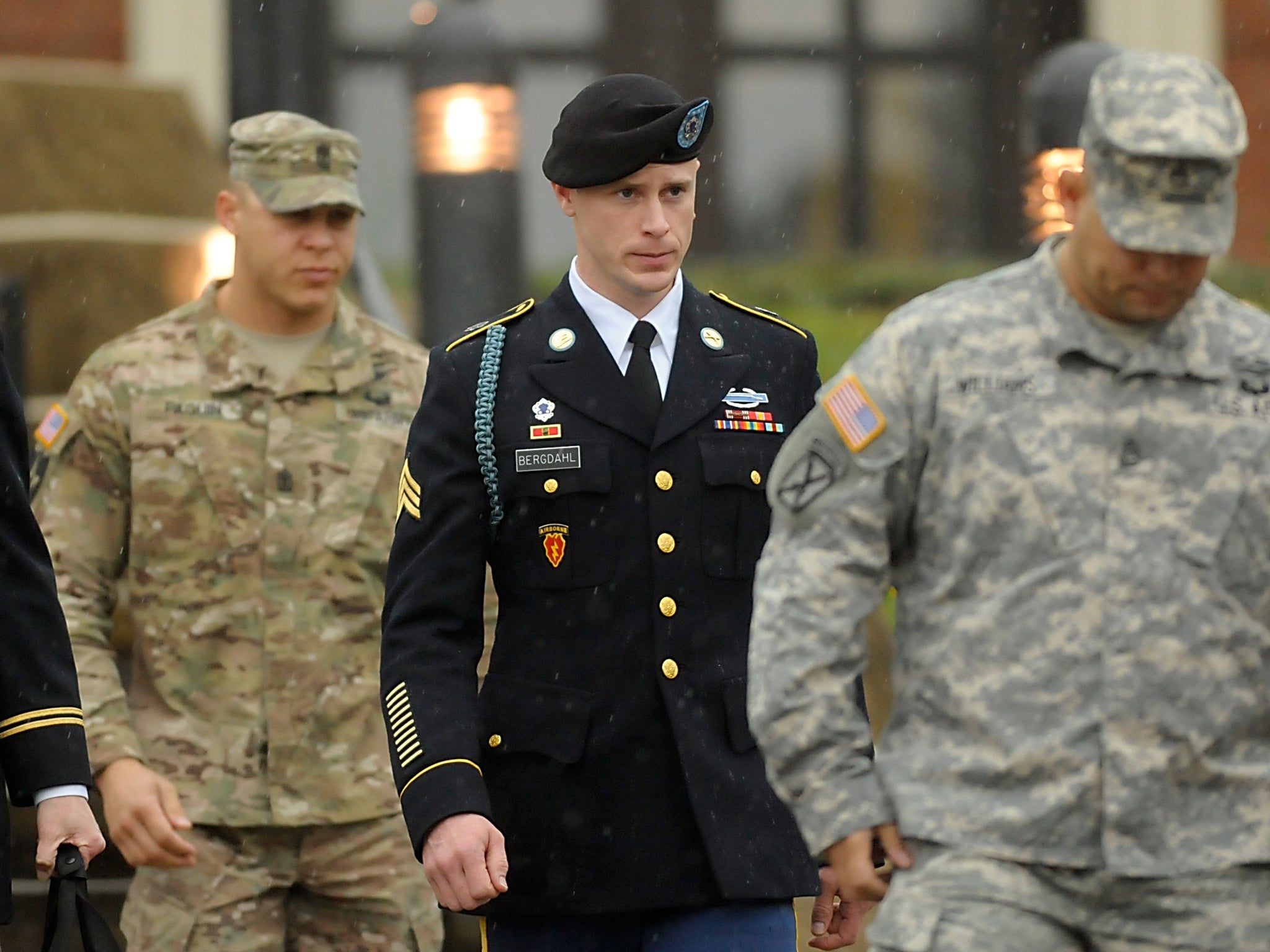Army judge considering dismissing case against Bowe Bergdahl after 'Trump made it impossible to have fair trial'
The sentencing hearing has proceeded anyway, and an ex-Navy SEAL has broken down in tears

Your support helps us to tell the story
From reproductive rights to climate change to Big Tech, The Independent is on the ground when the story is developing. Whether it's investigating the financials of Elon Musk's pro-Trump PAC or producing our latest documentary, 'The A Word', which shines a light on the American women fighting for reproductive rights, we know how important it is to parse out the facts from the messaging.
At such a critical moment in US history, we need reporters on the ground. Your donation allows us to keep sending journalists to speak to both sides of the story.
The Independent is trusted by Americans across the entire political spectrum. And unlike many other quality news outlets, we choose not to lock Americans out of our reporting and analysis with paywalls. We believe quality journalism should be available to everyone, paid for by those who can afford it.
Your support makes all the difference.The Army judge overseeing Army Sergeant Bowe Bergdahl's sentencing hearing says that he is still considering dismissing the case, after the former prisoner of war's defence team argued that President Donald Trump had made it impossible for him to have a fair trial.
Even with that potential for dismissal, the judge, Army Colonel Jeffrey Nance, is allowing three service members who were injured during the search for Sgt Bergdahl to testify. Sgt Bergdahl voluntarily left his post in Afghanistan before being captured by the Taliban in June of 2009.
"Under the military justice system, it's unlawful for commanders to influence legal cases, or even give the appearance of influence. That principle covers the president as commander in chief," Colonel Nance said earlier this week, considering whether Mr Trump's recent comments that Sgt Bergdahl is a "traitor" constitute interference in the case.
As the sentencing hearing proceeded, an ex-Navy SEAL, broke down in tears while testifying about a military dog that was killed during search and rescue efforts. The SEAL, retired Chief Petty Officer James Hatch, entered the courtroom with a limp, accompanied by a service dog.
While remaining mostly stoic during questioning, Chief Hatch broke down in tears when describing the dog, that helped identify enemy combatants when they lost sight of them during hectic situations.
“His name was Remco,” he said. His voice cracked as he named the dog.
Chief Hatch said that his team’s helicopter came under fire during a search and rescue mission near the Pakistan border, near where they thought Sgt Bergdahl may have been. The mission was hastily planned, he said, and solely aimed at finding Sgt Bergdahl. He later recalled saying to a fellow soldier that the efforts to find Sgt Bergdahl would likely end up with dead American soldiers.
After landing, they came under fire again while the dog was leading them through a field, and found two enemy fighters. Those Taliban fighters then began spraying the group with AK-47 bullets, killing the dog and hitting Chief Hatch in the leg, he said.
“I screamed a lot. It hurt really bad… I thought I was dead,” Chief Hatch testified.
Another witness, Captain John Billings, Sgt Bergdahl's platoon leader, described the searches immediately after he disappeared into the desert. He said that they were hectic with worry.
"The next 10 days were just kind of a blur," he said. "Everybody in Afghanistan was looking for Bergdahl."
Sgt Bergdahl’s sentencing had been delayed because of Mr Trump's comments, who recently described him as a “dirty rotten traitor.”
In those remarks, Mr Trump said that the Idaho native should be executed by firing squad, or thrown out of a plane without a parachute.
Sgt Bergdahl was captured in 2009 after he left his post, sparking a major search and rescue mission. At least six soldiers were reportedly killed in the effort, though that figure has been disputed by some who point out the difficulty in establish blame for deaths in a warzone.
He was released from Taliban custody in 2014.
Join our commenting forum
Join thought-provoking conversations, follow other Independent readers and see their replies
Comments